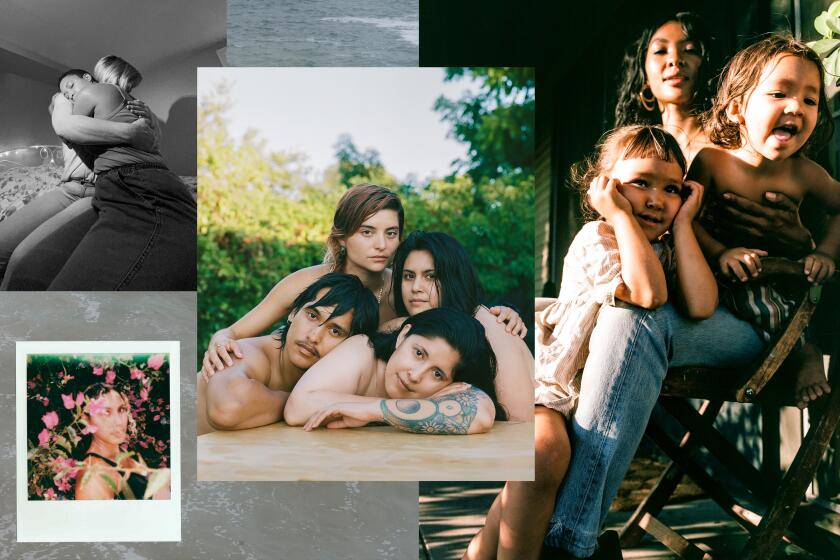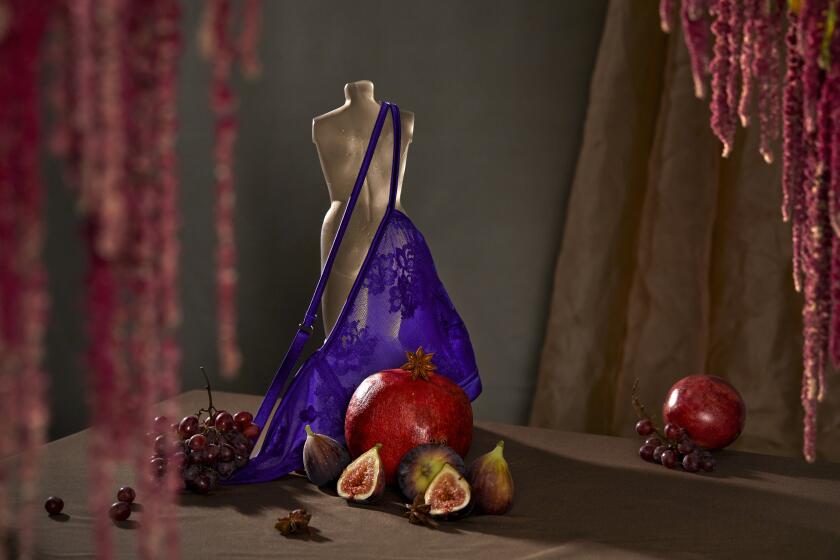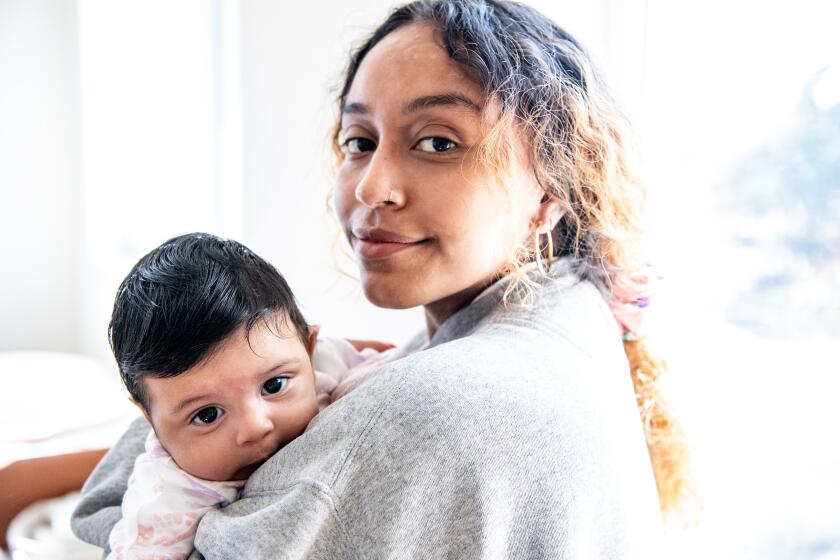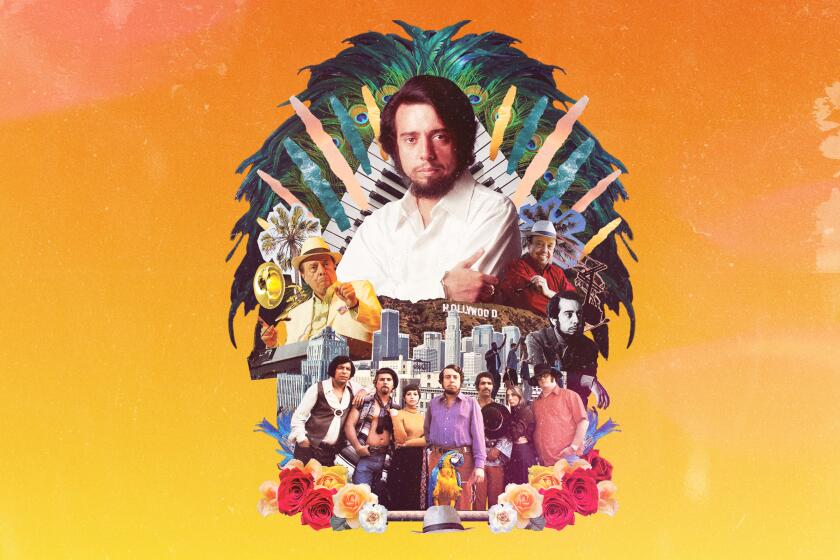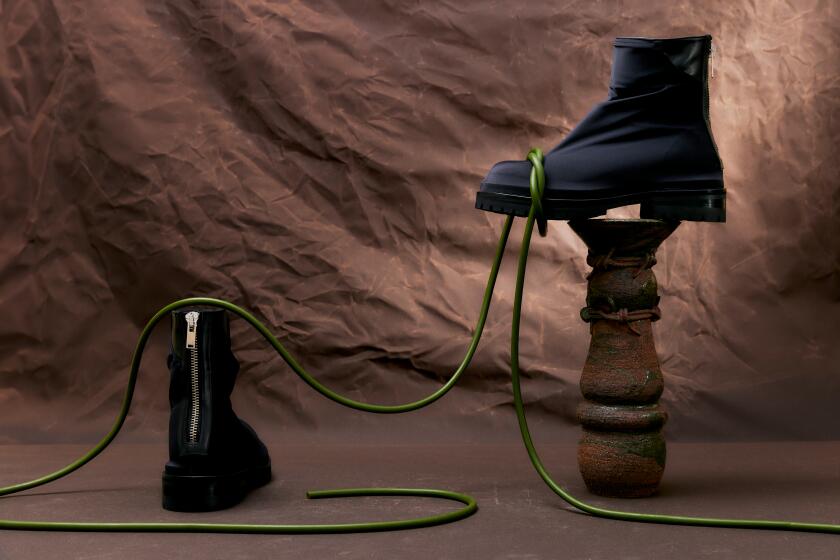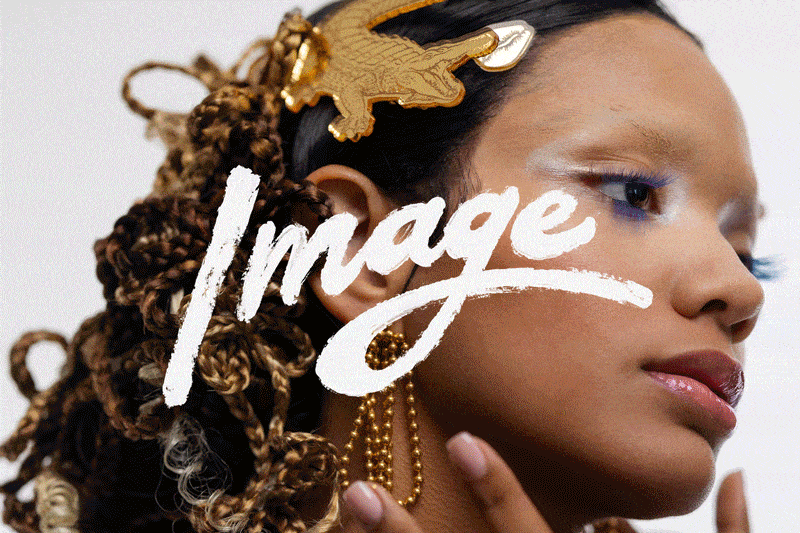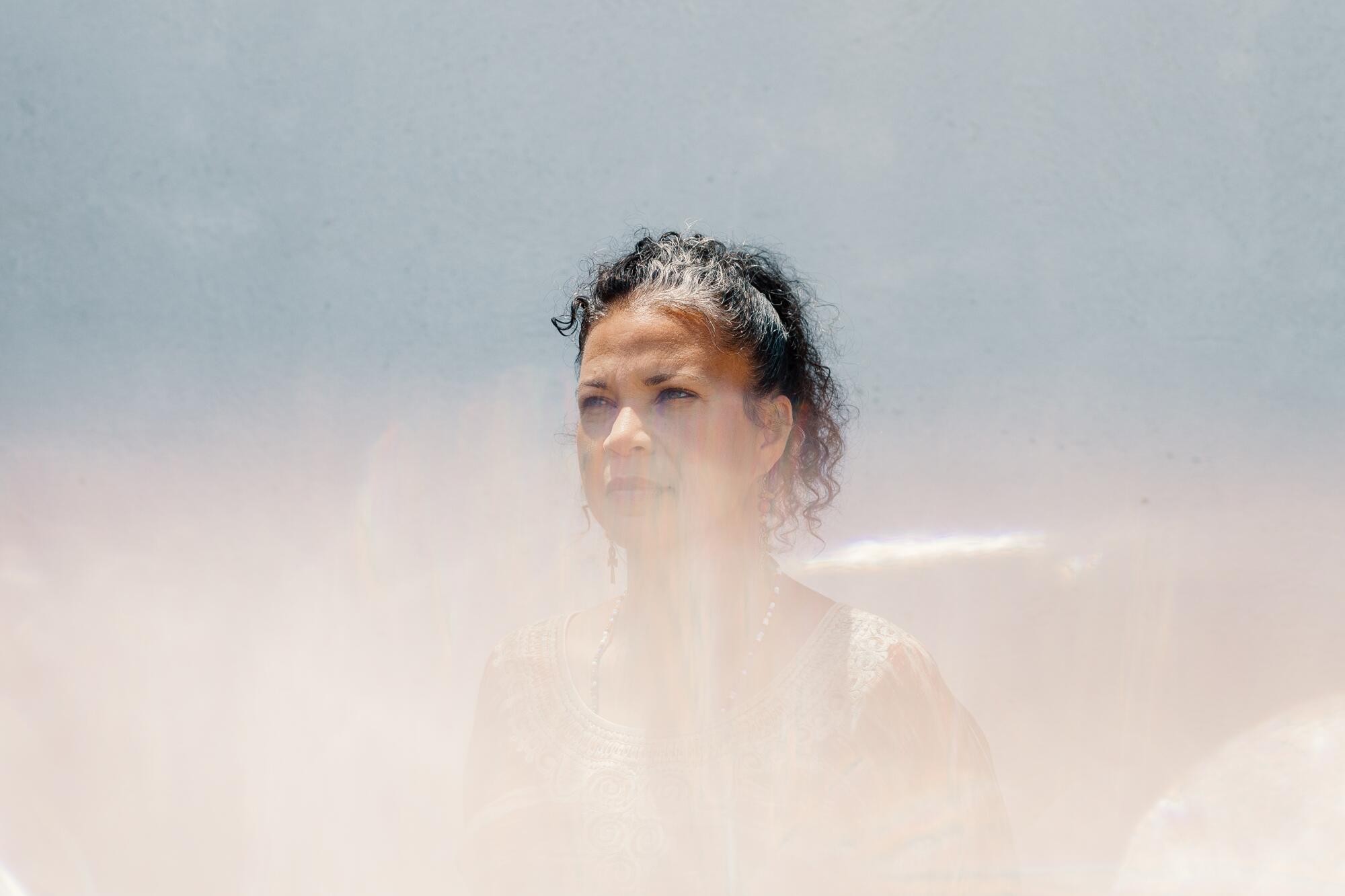
This story is part of Parents Are Cool!, the third issue of Image, which explores the myriad ways in which L.A. parents practice the craft of care. See the full package here.
When Melina Abdullah mentions a forebear in the struggle for civil rights and freedom in this country, she often applies a familial honorific — “Mama Harriet Tubman” or “Mama Sojourner Truth.” This feels apt, given that Abdullah, who was part of the original group that convened to form Black Lives Matter, serves as a kind of matriarch for the current movement in Los Angeles. She is frequently pictured with a microphone in hand, leading crowds in their demand for justice for a victim of police violence or for accountability from elected officials. At the start of these protests she’s known to call on her ancestors for guidance and protection, extolling those gathered to claim a lineage that is broader than their own direct bloodlines.
In addition to her organizing work with BLM-LA, Abdullah is a scholar. She works across platforms the way an artist works across disciplines. She’s currently a professor and the former chair of Pan-African studies at Cal State L.A. She also hosts or cohosts three (yes, three) local radio shows: “Move the Crowd” and “Beautiful Struggle” on KPFK-FM and “This Is Not a Drill” on KBLA-AM. She does all of this while single-mothering three children, which is not to say that she raises them alone. In a 2012 essay on womanist mothering, Abdullah ascribes to a style of parenting that challenges the confines of the nuclear family, embracing extended familial and communal bonds, an approach that “enables mothers to develop as full and complete human beings.”
I caught up with Abdullah to talk about this approach, her intellectual journey and her efforts to challenge the status quo in Los Angeles.
Angela Flournoy: So I’m really excited I’m able to talk to you. I’ve been thinking about finding a reason to speak to you for several years now, probably since I first learned about the “Jackie Lacey must go” rallies. One thing I’m really excited to talk to you about is motherhood. I’ve been thinking particularly about my own mother’s work and how she described that work to me throughout her life. How do you describe the work that you do to your children?
Melina Abdullah: You know, I don’t describe it to my children. I’m a single mom. Me and my kids are a team. We’re tight. My kids are involved in everything I do. Sometimes I’ll say I’m one of the original members of Black Lives Matter and they’re like, “We are too.” And they are — they were there from the beginning. There’s not a lot of describing, they’re just present. Who I am as an organizer is also part of who we are as a family of organizers.
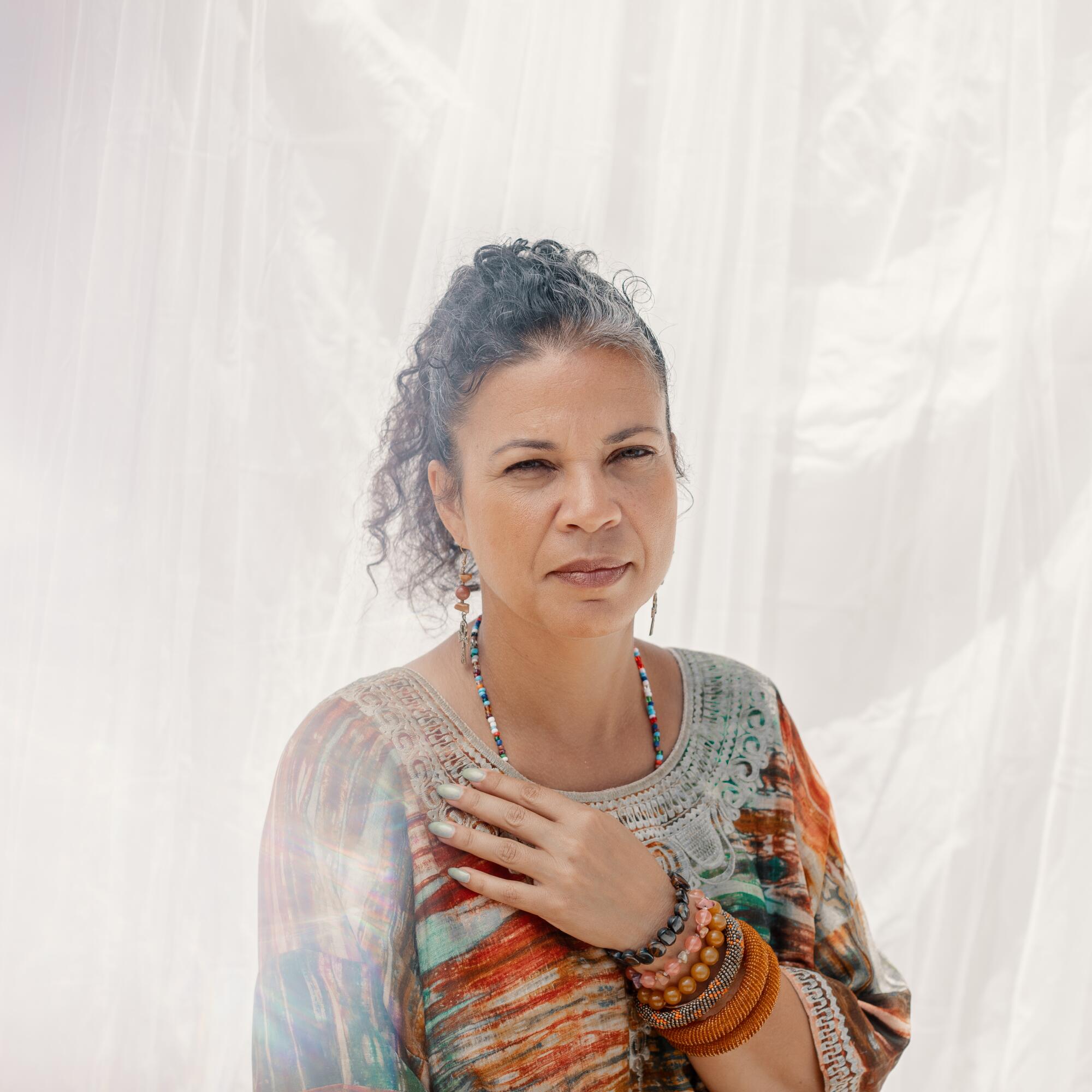
AF: That’s wonderful. Not just sort of witnessing you and your activism but being a part of it. How do you think that impacts the way that you think about hope and optimism?
MA: I have a lot of hope because of the kids. The kids are much more courageous than adults are. Kids are born into the world, anything is possible. That’s the way that they talk and think. They are audacious and visionary and courageous. And they’re not invested in the system at all. It gives me tremendous faith that they can do anything. The one thing that they — my oldest daughter in particular — warn me about is that we have faith in them, but they don’t want us to give it all to them. They don’t want us to offload the movement — say, “You got it.” They want us in the struggle too.
AF: That really seems to be sort of a central kind of tenet of the way you live your life. The concept of Ujamaa — everybody in the community sort of having a part.
MA: We talk about it as having a leader-full movement, and that really comes from Mama Ella Baker’s concept of groups and leadership. To be a part of the movement, to be an activist or to be an organizer, doesn’t mean you have to be the one speaking on the megaphone. It means whatever your gift is, you bring that to the movement. I think it’s really important that we reconceptualize what movement is so that every talent and gift and resource and passion can be part of movement building. You don’t have to develop skill sets that are outside of your comfort zone or interest area, you can bring your passion and that’s what’s most important.
More stories from Image
These L.A. photographers offer a vision of what parenting can be
Dave Schilling unpacks L.A.’s obsession with dad hats
Jamilah Lemieux riffs on the L.A. wave of going topless in public
We picked some of the coolest parents in L.A. culture. Now you can pick which one you want to be
Ian F. Blair talks to Sadie Barnette about legacy, legend and her father’s 500-page FBI file
AF: In the past year, it seems as if a lot of people are using phrases that I never really heard in common parlance before. One of them is the “Black Radical Tradition.” How would you define the Black Radical Tradition, and how has it influenced your own life?
MA: When we think about the Black Radical Tradition, we traditionally go back to the ’60s. But I think that we actually want to go back further — we want to go back to the moment that we were stolen from Africa. If we think about the freedom struggle from chattel slavery, Mama Harriet [Tubman] wasn’t saying, “Just end slavery,” she was saying, “Let’s get to freedom.” That’s the Black Radical Tradition, not just freeing ourselves from conditions but freeing ourselves from an entire system that’s built on our exploitation and our un-freedom. When you talk about the anti-lynching movement, Ida B. Wells and Mary Church Terrell, they were intent not just on ending lynching but also building a world where Black people could grow and prosper. The Black Radical Tradition is abolitionist. It’s about upending unjust systems. But also, there’s another side. Angela Davis reminds us you have to upend unjust systems and you have to envision and build towards new ones. You have to have the vision to build towards a new world.
AF: That is a much more useful framework — being accountable to that future we can’t yet see.
MA: I also think that when we talk about the Black Radical Tradition, there’s an urgency to it. It is thinking about future generations, but it’s also wanting it now. I’m not talking about freedom for my children once I’m dead. I’m talking about freedom for my children now. I’m not talking about abolishing jails, prisons and police in 50 years or 100 years. I’m talking about next year.
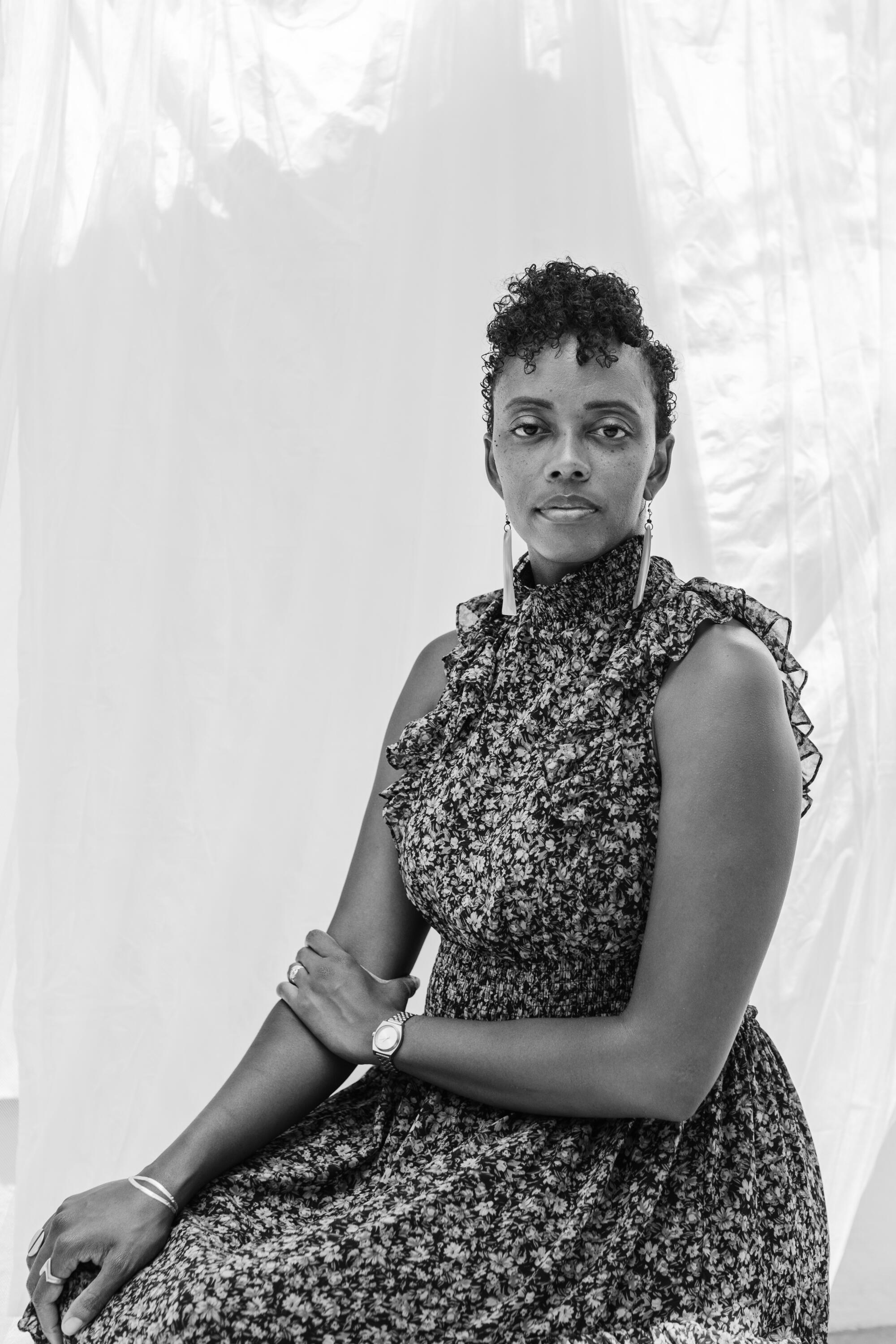
AF: I want to turn toward your scholarly work — which, since you have such a large presence here as an activist, people don’t really talk about as much. What were some of the seminal texts that shaped you as a scholar?
MA: All of Angela Davis’ work, especially “Women, Race & Class.” Robin Kelly’s work. “Freedom Dreams” completely transformed me. When we talk about what it is to be an abolitionist and see the world you want to live in and work towards it, “Freedom Dreams” was really pivotal. The first book I have any student read is “Black Power” by Kwame Ture and Charles Hamilton. I always warn them, “Do not start highlighting because the whole book will be yellow.” I love Kimberlé Crenshaw, Derrick Bell. My mentor, Michael Preston. He wrote the book “The New Black Politics.” That was really important for me. I know I’m forgetting people who are really important to my work. bell hooks.
AF: Paula Giddings …
MA: I love Paula Giddings. “When and Where I Enter.” There are texts like theory, but there’s also the awakenings. Toni Morrison, Alice Walker and Octavia Butler are my three favorite authors.
Embedded in the Black Radical Tradition is the Black radical imagination. What’s in “Kindred” — the text is Black radical imagination. What art has a capacity to do, what fiction has a capacity to do, is bypass. It doesn’t start with the intellect; you’re drawn in from your soul. You experience it rather than just thinking about it.
What does parenting look like? Four L.A. photographers share
AF: I’m curious about other formative experiences. How has maturing as an activist in L.A. shaped you?
MA: I’ve always had a kind of radical leaning — that’s core to who I am. When I moved here for my PhD, I was also being groomed by the Black political establishment. I think stepping fully into who I am as a radical organizer made me realize I can’t have both. I don’t really want both. I think that question is being posed to a lot of Angelenos now. Like, what side are you on? I want to make sure we don’t lose the moment. Because it seems as if people are being lured back into finding a comfortable place in oppression. It’s important that we realize that. We always say, “When we fight, we win.” We need everybody in the fight.
There was a moment in 2015. We were protesting outside of Garcetti’s house for Ezell Ford. And I remember thinking to myself, “Well, I guess you’ll never run for office now!” I remember feeling like, that’s OK. Because this is my calling. I thought about how I’m a completely single mom. I have three kids who are only dependent on my salary. I do have tenure but I also know that it’s not foolproof. So I said, “Well, what if you get fired from your job?” That came up. And as quickly as I had that anxiety, God said: “So what. Your mama has a couch.” We need people to recognize that your mama has a couch. There are some sacrifices that are worth it.
AF: Do you think that comfortability in oppression is a particular temptation in this city? Or do you think that it is just part of being a person trying to navigate capitalism in this country?
MA: I think it’s everywhere. But I think it’s more intense here. L.A. is the place where you see everything. You see fancy things, and they’re not that far from reach, just on the other side of the freeway or whatever. If you saw a Lamborghini in Oakland, you’d think about it for a year. Here, you’re used to seeing celebrities. I don’t really know anybody who hasn’t ever been on TV. Every other person has been an extra on a show.
AF: That sort of relates to another thing. You do have celebrities who want to be involved in the movement. They know what it is to have the material comfort. How has it been working with them?
MA: I’m encouraged by the way in which a lot of celebrities have engaged. Last summer, we had tons of artists at all our stuff. There are artists who are coming out because they feel pulled, but also because it becomes acceptable. There was a time, in 2013 when we were born, nobody would even say “Black lives matter.” They thought it was too radical to say Black lives matter. But now everybody’s like, of course, we’re gonna say Black lives matter. There are artists who did that. Many of them also gave money. Many of them will post on their platforms. But then there’s also the people who were in it before, and who continue to be in it now.
I wanted to say something else about L.A. I think that there’s the glamour that, you know, is the lure into comfort. But also, I think there’s tremendous potential in L.A. for mass uprising, and that’s what you saw in ’65 and ’92. And this year. It’s the reason Black Lives Matter was birthed here. There’s a tremendous potential in Los Angeles because we see the contrast constantly. So in ’65, you got the Voting Rights Act passed. Now Black folks are free. But then you got Marquette Frye and his mama and his brother getting beaten in Watts by the police. In ’92, you have [the popularity of] Bill Cosby, with all that comes with it, right? But then you have the beating of Rodney King, right after the murder of Latasha Harlins. So these uprisings are always just beneath the surface, because we know that that veneer is also not true.
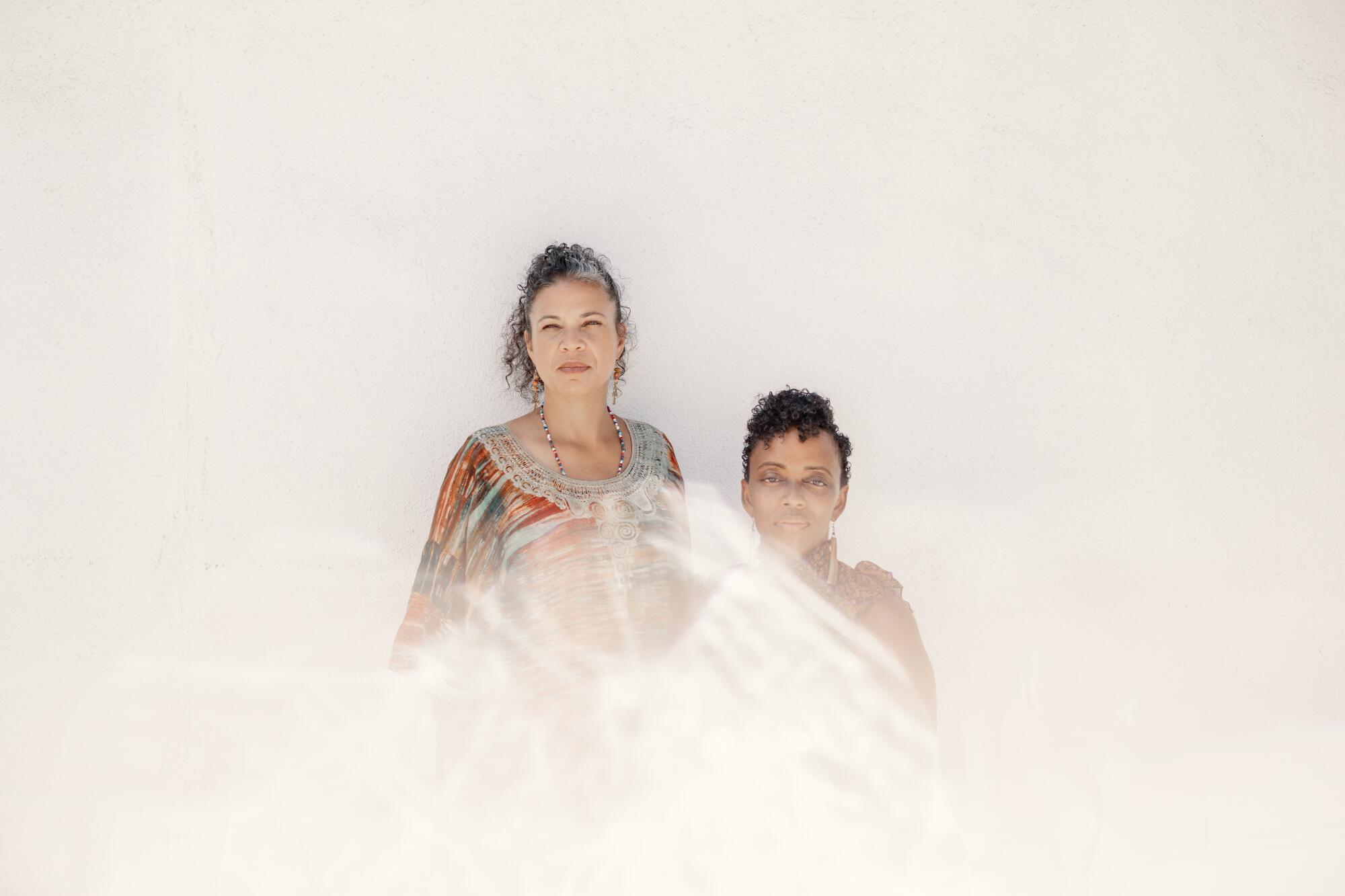
AF: I wanted to get back to this idea of womanist mothering. We’ve covered some of this already: birthing hope, birthing possibility, birthing the promise of revolution. I wonder if you’ll just let me read a paragraph from this essay you wrote in 2012.
“In my moments of exhaustion, overwhelmed by work, home, marriage, and motherhood, I sometimes fantasize of a life of greater freedom. I imagine the world of a public intellectual, who churns out book after book — each more brilliant than the last, attends lectures and workshops almost nightly, and appears regularly as a talking-head on television newscasts. I think of how I would indulge my insatiable desire to read ... staying up until the wee hours of the morning devouring each text at the moment of its release. If I weren’t the mother of three, my strong brown legs (toned from my nightly African dance class) would carry me across the sunlit campus of the most esteemed Historically Black University in the nation, where I was the campus star. Colleagues and students would stop and nod, admiring my meticulously coifed hair and the exquisite jewelry (that I picked up during my seventeenth trip to Ghana, where I was conducting my most recent research). I would spend my weekends running a community program for Black girls, attending concerts, practicing martial arts, and tending my garden where I’d grow mangos, tomatoes and avocados ...”
MA: Why does that still sound good to me?
AF: Nine years later, I’m wondering if a life of greater freedom still sounds like this to you? Or if it sounds different now.
MA: So I’m not married anymore. I have greater freedom because of it. After I got divorced, there was one moment when I took my kids out after school on a school night; we went to the Grove. There used to be this Mexican spot on the Farmers Market side: Lotería. They had the best quesadillas. We were there till like 9 o’clock. When we got home, it was like 10 o’clock on a school night. [I had one of] these moments of revelation. I was like, I get to raise my kids how I want to raise my kids. There’s nobody there to get mad. I think a lot of times like we’re fed this idea that that’s sad. It’s not; it was really great.
I have been to Ghana — not 17 times but once. I’ve been to South Africa. I’ve been to Morocco. I’ve been to all of these places. I’ve had lots of experiences. I don’t get nods on campus all the time. But the Black folks love me. I’m not in an HBCU because I’m not going to leave L.A. right now. But the beauty of it is embracing my kids as my partners. And the point of the essay was also figuring out how to bring in community and make real that African teaching of “it takes a village.”
I do remember the part in the essay where I talked about Alice Walker and her saying, “You should have kids, but just one. More than that and you’re a sitting duck.” I think that when you raise your kids to be your comrades, to be your crew, you got an army. You’re not a sitting duck. If somebody comes for me, they come for us. And if somebody comes for them, they come for us.
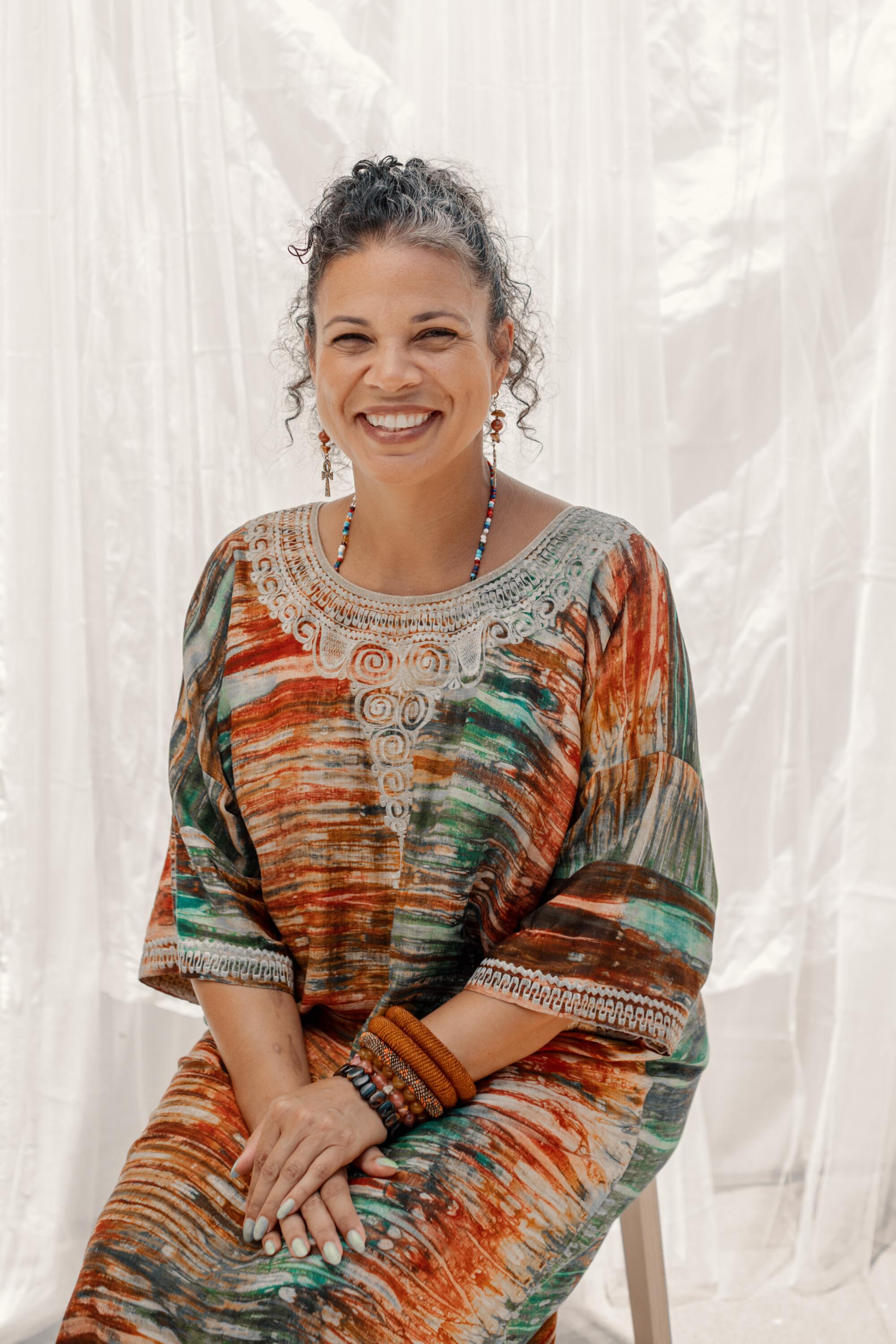
AF: What do you want now?
MA: Freedom for my people. But for me, I want a clean house. I haven’t gotten my hair done since before the pandemic. Little stuff. I love my life. There’s nothing I really want. I feel very fulfilled, like very fulfilled. The movement fulfills me, my kids fulfill me. I have great people around me who I love. I have a lot of laughter. You know? I don’t really want anything for me.
